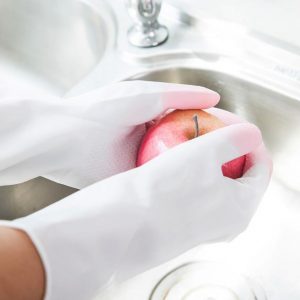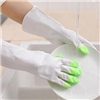Allergies and Sensitivities: One of the most significant concerns with powdered latex gloves is their potential to cause or exacerbate latex allergies and sensitivities. The powder in these gloves can carry latex proteins, which are known to trigger allergic reactions in susceptible individuals. Inhalation or skin contact with the powder can lead to respiratory or skin sensitization issues.
- Infection Transmission: Powdered gloves have been linked to an increased risk of wound infections and post-operative complications. The powder can act as a carrier for bacteria and viruses, potentially leading to contamination of surgical sites and wounds.
- Healthcare Worker Risks: Healthcare workers who frequently use powdered latex gloves may be at greater risk of developing latex allergies or respiratory issues due to prolonged exposure to the latex proteins released by the powder.
- Food Contamination: In food handling and preparation settings, powdered gloves pose a risk of contaminating food with the powder, which is an unwanted foreign substance.
Due to these safety concerns, many healthcare facilities, food service establishments, and other industries have transitioned to using powder-free latex gloves or non-latex alternatives like nitrile or vinyl gloves. Powder-free gloves do not carry the same risks associated with the powder used in traditional powdered gloves and are considered safer for both users and patients.
It is essential to consider these safety concerns when choosing gloves for specific applications. If latex gloves are necessary and no latex allergies are present among users or patients, opt for powder-free latex gloves to minimize potential risks. For individuals with latex allergies or sensitivities, non-latex gloves, such as nitrile or vinyl, are recommended to ensure a safe and appropriate choice for hand protection.
















